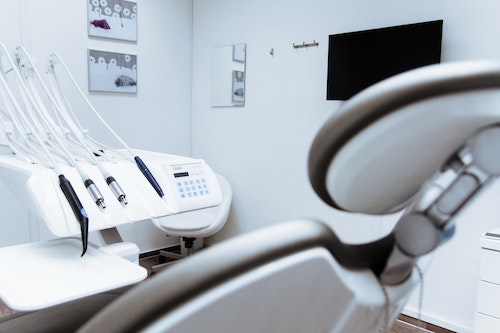
European Health Systems: Assessing Preparedness and Response
The outbreak of the COVID-19 pandemic has challenged health systems worldwide, putting significant strain on healthcare providers, policymakers, and concerned citizens. In this article, we will examine the preparedness and response of European health systems in dealing with this unprecedented crisis.
Introduction
European health systems, renowned for their efficiency and quality of care, have been put to the test with the rapid spread of COVID-19 across the continent. The challenges faced by health professionals, policymakers, and concerned citizens have highlighted both strengths and weaknesses in these systems. Understanding the preparedness and response of European health systems is crucial in forming effective strategies to combat the pandemic and prepare for future crises.
Assessing Preparedness
Preparedness is crucial for any health system to effectively respond to a crisis. European countries have demonstrated various degrees of preparedness, reflecting differences in resources, infrastructure, and healthcare models.
1. Infrastructure and Capacity
The availability of healthcare facilities and equipment has played a significant role in determining the preparedness of European health systems. Countries with a higher number of hospitals, intensive care units (ICUs), and advanced medical technologies were better equipped to handle the surge in COVID-19 patients.
Nevertheless, a shortage of critical care beds and equipment has been observed in several countries, leading to overburdened hospitals and strained healthcare providers. This highlights the need for increased investment in infrastructure and the importance of maintaining sufficient capacity to handle unexpected crises.
2. Health Workforce
The preparedness of European health systems also heavily relies on the strength and resilience of their healthcare workforce. The dedication, expertise, and selflessness displayed by European health professionals during the pandemic deserve admiration and recognition.
However, the shortage of healthcare workers and overworked staff has exposed vulnerabilities in the system. Policymakers must address these challenges by investing in the recruitment, training, and retention of healthcare professionals to ensure a robust and resilient workforce.
3. Pandemic Planning and Coordination
The level of preparedness exhibited by European health systems has been influenced by pre-existing pandemic planning and coordination efforts. Countries that had effective strategies in place, including clear communication channels, readily available stockpiles of medical supplies, and established protocols, were better prepared to respond to the crisis.
While some European countries benefited from previous experiences with infectious diseases, others faced significant challenges due to limited preparedness. Moving forward, it is crucial to learn from these experiences and establish robust systems that can effectively respond to future health crises.
Evaluating Response
The response of European health systems to the COVID-19 pandemic has been multifaceted, incorporating various measures such as testing, contact tracing, treatment protocols, and public health interventions. Evaluating the response offers valuable insights into the effectiveness of different strategies and their impact on mitigating the spread of the virus.
1. Testing and Surveillance
Testing and surveillance have played a vital role in managing the pandemic. European health systems have employed different testing strategies, varying in scale, frequency, and targeting. Rapid testing, contact tracing, and widespread surveillance have proven effective in identifying and isolating infected individuals, thereby preventing further transmission.
However, some health systems faced challenges related to testing capacity and turnaround times, highlighting the importance of continuously strengthening diagnostic capabilities and ensuring timely access to testing for all citizens.
2. Treatment and Care
Managing COVID-19 patients has presented significant challenges for health systems across Europe. The availability of ICU beds, ventilators, and healthcare professionals with expertise in infectious diseases has been critical in providing adequate care for severely ill patients.
The sharing of knowledge and experiences among European healthcare professionals has facilitated the identification of effective treatment protocols and improved patient outcomes. However, the strain on healthcare resources and the physical and emotional toll on healthcare workers should not be underestimated, emphasizing the need for ongoing support and resource allocation.
3. Public Health Measures
The implementation of public health measures, such as social distancing, mask mandates, and travel restrictions, has been instrumental in curbing the spread of the virus. European health systems have taken varying approaches, depending on their epidemiological situation and cultural context.
While these measures have proven effective in reducing transmission rates, their impact on mental health, socioeconomic disparities, and other health conditions should be carefully monitored. Balancing the need for containment measures with the overall well-being of the population remains an ongoing challenge.
Conclusion
The COVID-19 pandemic has served as a stark reminder of the immense importance of preparedness and response in European health systems. While challenges have arisen, the dedication and resilience of health professionals, along with a strong response framework, have been crucial in tackling this global crisis.
To ensure preparedness for future health emergencies, the European health systems must continue to invest in infrastructure, bolster the healthcare workforce, and refine pandemic planning strategies. Collaboration and knowledge-sharing across countries will enable the exchange of best practices and improve overall response efforts.
As concerned citizens, policymakers, and healthcare professionals, it is essential to remain vigilant, learn from the current experience, and strive for a more prepared, resilient, and responsive European health system in the face of future challenges.



